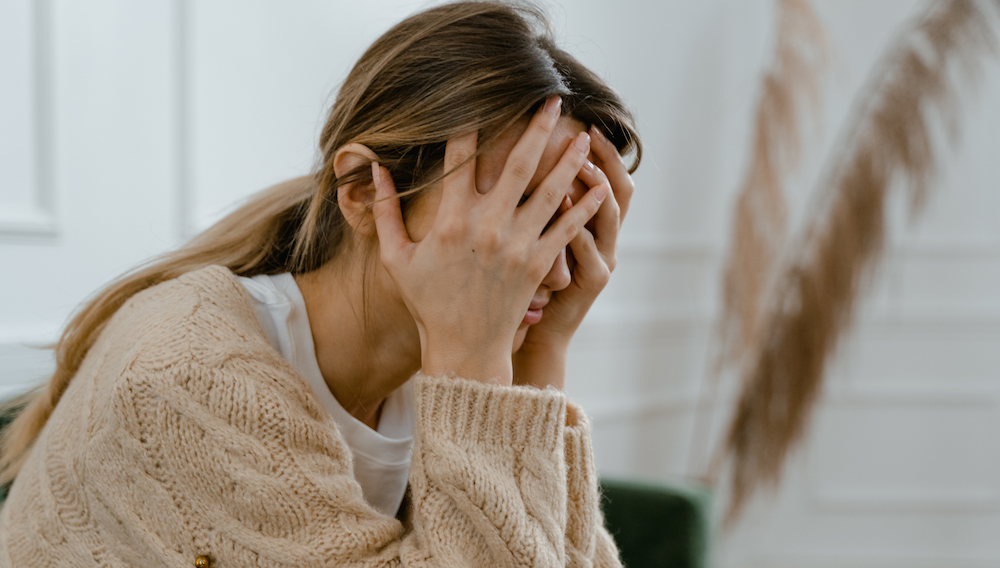Depression is a common condition affecting 1 in 6 adults. More than two-thirds of those affected will be women, and we know that Postpartum Depression affects about 10 percent of moms. But later in life, depression seems to be more common. Many people ask their care team, “Can menopause cause depression?” The answer is a little more complicated than a simple yes or no. While menopause can increase the risk of depression, it isn’t necessarily a cause-and-effect relationship. And even if hormonal changes are a factor, it doesn’t diminish the fact that depression can become serious and debilitating. With depression being so common and responsive to treatment, we want to share some information about depression and its relationship to menopause.
Start here. Watch this Mayo Clinic physician talk about depression.
Depression Symptoms
The symptoms of depression vary from person to person, but a depression diagnosis is marked by lasting sadness or lacking interest for more than two weeks. It can include feeling sad or blue, but it can also be marked by apathy, tiredness, and irritability that doesn’t go away. None of the symptoms are the person’s fault. Depression is an illness that ranges from mild to debilitating, which is also known as clinical depression. Left untreated, it can lead to self-harm or suicide, which is why we encourage everyone who receives a diagnosis of depression, whether mild or clinical, to seek treatment.
Hormonal Changes During Menopause
During the menopausal transition, the hormone estrogen decreases. This lowering of this hormone allows other hormones, like serotonin, to have more influence over a woman’s mood, sleep, and appetite. The changes can occur gradually or abruptly, as in the case of a total hysterectomy, which removes the uterus and ovaries—two parts of a complex system of female anatomy.
The hormonal imbalance may cause hot flashes, sleep disruption, weight gain, and other symptoms. For example, menopause can greatly disrupt a woman’s sleep patterns. Sleep is an important factor in a person’s health, and it is especially important for maintaining mental health and clear thinking. Lack of sleep or too much sleep are among the signs of depression, too. Learn more about menopause management in our previous blog post.

Stress During Menopause
Hormonal imbalances aren’t the only reason for the increased risk of depression. Life stressors before and after menopause can also be a factor. Women over 40 may experience several major life changes while they go through perimenopause. That could include loss of identity as children move out of the house, the exhausting process of providing care for aging parents, losing older family members, and increased work responsibilities. As life shifts, so can sleep patterns, stress levels, and self-care. The stress during this period of life can build up considerably. Left unchecked, the cumulative stress can contribute to symptoms of depression.
Depression is Treatable
The good news is that depression is highly treatable. Treatment for depression can include medication, psychotherapy, and lifestyle changes. Sometimes, mild depression can be avoided through proactive improvements in exercise, diet, and sleep habits. Starting or revisiting healthy habits has been shown to make people with depression feel better. People with clinical depression may find the most improvement through a combination of psychotherapy, medication, and lifestyle changes.
Whether you fit within the menopause age range or not, if you have been feeling sad, apathetic, or irritable for more than a couple of weeks, reach out to your physician to get help. You can also talk to your care team at West Des Moines OBGYN Associates for guidance.
If you are in a depressive crisis, call or text 988. Like 911, the 988 Lifeline is a national number you can call for mental health referrals.


